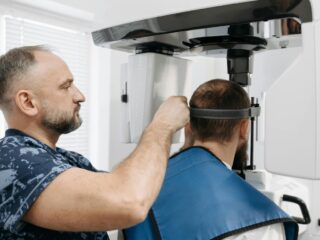
End-of-life care plays a vital role in healthcare. It ensures comfort, dignity, and emotional support for patients with terminal illnesses and their families during a very difficult time. Hospice care is particularly noteworthy in this regard, as it offers a specialized approach that emphasizes improving a patient’s quality of life in their final days.
This article delves into the essential role of specialized hospice training for nurses. We’ll look at the unique skills this training imparts and the substantial benefits it brings to patients, their families, and the entire healthcare system.
The Role of Nurses in Hospice Care
Hospice nurses play a central role in ensuring a peaceful and dignified end-of-life experience for patients and their loved ones. Their responsibilities are multifaceted, encompassing a wide range of clinical and emotional support.
On the clinical side, hospice nurses manage a patient’s pain and symptoms, ensuring they remain comfortable throughout their final days. This includes administering medication, providing wound care, and coordinating care with other healthcare professionals. They also educate patients and families about the disease process and what to expect as the illness progresses.
Beyond clinical care, hospice nurses provide essential emotional support. They listen attentively to patients’ and families’ concerns, addressing anxieties and fears with compassion and empathy. They may also help families navigate complex emotions like grief and loss.
The emotional and physical demands of hospice nursing can be significant. Regularly witnessing death and loss can take an emotional toll. Hospice training for nurses equips them with the knowledge and skills to cope with these challenges effectively, fostering resilience and self-care practices to prevent burnout.
Benefits of Specialized Hospice Training
While all nurses possess a strong foundation in patient care, hospice training equips nurses with a specialized skill set that significantly enhances their ability to provide exceptional end-of-life care. Here’s how this training elevates the quality of support offered to patients and families:
- Deepening Compassionate Care: Nurses who receive specialized training gain a deeper insight into the emotional challenges that come with terminal illness. This allows them to provide more sensitive and empathetic interactions with patients and families. These training programs often include communication techniques tailored to discussing tough subjects such as grief, loss, and end-of-life wishes.
- Communication Mastery: Hospice care necessitates clear and open communication with patients and families. Training equips nurses to have sensitive conversations about prognosis, symptom management, and advanced directives. They learn to listen actively to the needs and concerns of patients and their families, building a trusting and collaborative environment.
- Expert Symptom Management: Managing pain and symptoms is essential in hospice care. Specialized training provides nurses with advanced knowledge and techniques for managing a wide range of symptoms, including pain, nausea, shortness of breath, monitoring blood sugar, and more. This training enables them to customize care for each patient, ensuring they remain as comfortable as possible during their end-of-life journey.
- Psychological and Spiritual Support: Hospice care isn’t just about physical comfort; it also addresses emotional and spiritual well-being. This can include guiding conversations about spiritual beliefs, helping with grief counseling, or simply being there to listen during challenging moments.
Key Components of Hospice Training Programs
Hospice training equips nurses with the specialized knowledge and skills required to deliver exceptional end-of-life care. These programs usually include a thorough curriculum that covers several essential components:
- Understanding Loss and Grief: Hospice training delves into the complexities of loss and grief. Nurses learn about the emotional stages of grieving and acquire strategies to assist patients and their families through these deep feelings. This might include learning how to communicate effectively about grief-related issues or discovering various grief counseling resources available to support them.
- Cultural Competency: Providing culturally sensitive care is crucial in hospice. Training programs equip nurses with the knowledge and skills to understand and respect diverse cultural beliefs, values, and practices surrounding death and dying. This allows them to tailor their approach to individual patients and families, ensuring culturally appropriate care.
- Ethical Considerations: End-of-life care raises complex ethical issues. Hospice training equips nurses with a strong foundation in ethical decision-making. They explore topics like informed consent, withdrawal of life support, and ethical dilemmas surrounding pain management. This knowledge empowers them to advocate for patients’ rights and participate in ethical discussions with patients, families, and other healthcare professionals.
- Legal Aspects of Hospice Care: Hospice nurses must navigate various legal aspects of end-of-life care. Training programs provide them with a comprehensive understanding of relevant legal regulations, including advance directives, do-not-resuscitate (DNR) orders, and power of attorney for healthcare decisions. This knowledge ensures they adhere to legal requirements while providing patients with the care they deserve.
Challenges in Hospice Nurse Training
While the benefits of hospice training for nurses are undeniable, there are certain hurdles that need to be addressed. Here are some key challenges faced in this area:
- Accessibility: Quality hospice training programs may not be readily available in all regions. Factors like geographical location and funding limitations can restrict access for nurses seeking this specialized education.
- Time Constraints: Busy schedules can make it difficult for nurses to dedicate significant time to comprehensive training programs. Balancing work commitments with additional educational pursuits can be a significant obstacle.
- Ongoing Education: The field of hospice and palliative care is constantly evolving. Ensuring ongoing education and support for hospice nurses is crucial to keep their knowledge and skills current with best practices.
Fortunately, there are solutions and innovations emerging to address these challenges:
- Online Learning Platforms: The rise of online learning platforms offers greater accessibility to hospice training programs. Nurses can participate in flexible, self-paced learning modules that fit their busy schedules, regardless of location.
- Scholarship and Grant Programs: Scholarships and grant programs can help alleviate financial barriers associated with specialized hospice training. These programs can incentivize nurses to pursue this vital area of expertise.
- Inter-facility Collaboration: Collaboration between healthcare facilities can lead to the development of shared training programs and resources. This can optimize resource allocation and ensure a wider range of nurses have access to quality training.
The Future of Exceptional End-of-Life Care
Hospice care offers a beacon of comfort and dignity during a profoundly difficult time. Nurses play a central role in ensuring patients and families receive exceptional end-of-life care. Investing in specialized hospice training empowers nurses with the knowledge, skills, and emotional resilience needed to excel in this unique environment.
By overcoming existing challenges in training accessibility and fostering ongoing education, we can equip a new generation of nurses to provide exceptional care at the end of life. This not only benefits patients and families but strengthens the healthcare system as a whole by ensuring all individuals have access to compassionate and dignified care in their final days.













